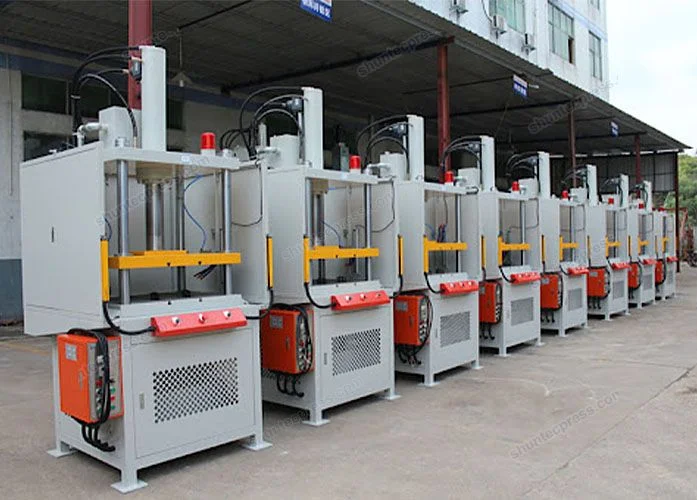

There are many reasons which lead to the hydraulic press seal leakage.
Here are a few reasons:
1. The static sealing surface which matches the outer edge of the oil seal and the cavity is deformed because the dimensional tolerance does not meet the standard specifications;
2. The material cracks due to the harsh working conditions, especially the cracks on the sealing edge of the oil seal;
3. As the working conditions are too harsh and the rubber elastomer is incompatible with the working medium, the hardness of the rubber increases, or the hardness of the elastomer is too high;
4. The sealing medium swells the rubber and reduces the hardness of the rubber, thereby causing premature aging and wear of the oil seal;
5. Corrosion from the shaft to the sealing lip area will leave a permanently hidden trouble of the sealing performance of the sealing system;
6. The lubricant fails and the system is in a dry-running state so that the sealing lip wears quickly;
7. Comprehensive aging of both rubber elastomer and sealing medium.
8. “Oil-carbon” dirt is formed at the sealing lip, which causes the sealing lip of the oil seal to be lifted, causing leakage of the sealing system.
9. The sealing lip of the oil seal no longer follows the vibration of the shaft surface and the beating of the shaft;
10. Contaminants are permanently embedded in the sealing edge from the inside and outside of the seal, causing premature wear of the shaft surface and the sealing lip;
11. Irregular assembly process causes damage to the contact surface of the shaft surface and premature wear of the sealing lip;
12. The sealing edge is damaged during storage, transportation, and assembly.
In Addition To The Above
We can analyze the causes of leakage according to the time course of oil seals being used, such as early-phase damage and leakage at the beginning of use; premature damage and leakage after a short period of use; damage and leakage after a fairly long period of use in work; damage and leakage at the end of the designed service life.

